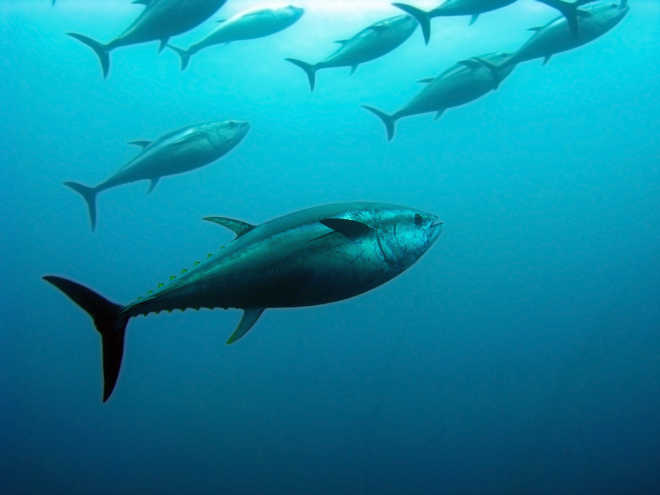
Photo Source: Thinkstock
New York
The silvery skin of fish like herrings, sardines, mackerel and tuna act like mirrors, reflecting their watery surroundings to better blend in and the effect serves as a kind of underwater invisibility cloak that helps them hide even from animals with super sight, new research has found.
Researchers have long assumed that some animals could see through this silvery disguise, thanks to a superpower of their own: the ability to detect a property of light — called polarisation — that humans can't see.
Octopuses and squid, shrimp and other crustaceans, and some fish such as trout and salmon all have the gift, called polarisation vision.
"It's kind of like wearing polarised sunglasses," said first author Sonke Johnsen, Professor at Duke University in Durham, US.
The polarisation state of light changes when it bounces off a silvery fish's shiny scales.
Scientists long presumed that this makes it easier for animals with polarisation vision to make silvery fish out against the background, to eat them or avoid them.
But the newly released findings suggest otherwise.
In a study published in the journal Current Biology, researchers went scuba diving in the waters around Australia's Great Barrier Reef and took hundreds of pictures of silvery fish, including tuna, amberjack, barracuda and queenfish.
The fish were photographed from six to 10 feet away using a custom-built underwater camera with tiny polarising filters built into the sensor.
The researchers used the images to measure the polarisation state and brightness of the light reflected from the fish and the background water.
By combining this information with a mathematical model of visual perception, they were able to calculate the maximum distance from which silvery fish can be detected using polarisation vision versus a "regular" light cue like brightness.
The data showed that polarisation vision does not help animals spot silvery fish from any farther away than they could without this special sensitivity.
"There's a lot polarised light underwater, and there are all these ocean animals that can see it, but we have no idea why," Johnsen said.
One possibility the researchers hope to investigate in the future is that polarisation vision is most useful at close range, such as when assessing a potential mate. — IANS



























